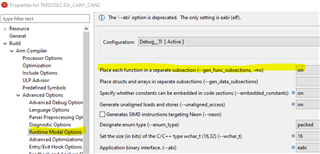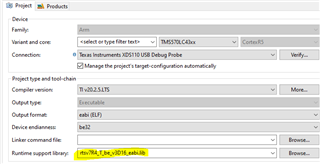Other Parts Discussed in Thread: HALCOGEN
I'd like to use interrupts/notifications to receive or send CAN messages.
If I use messageBox 1, I've used Halcogen to link the "Enable Int" and "High Priority" contact points for Msg1 on canREG3.
I do
canEnableStatusChangeNotification(canREG3);
and have
canMessageNotification(node, messageBox)
populated as appropriate.
A breakpoint on canMessageNotification() never triggers, so interrupts are not happening.
This stuff currently works fine with polling, so I know data is transmitted by and received by the rx board (both polling).
I'm probably missing interrupt routing stuff.
Thanks for all help.




